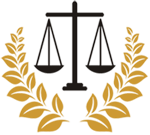Search Our Site
All Legal Articles
Read Related Legal Articles
I Was Arrested for Public Intoxication – Fines, Penalties, Costs, and Sentencing
Controlled substances are those that the federal government has made either totally illegal or legal under specific circumstances, such as by prescription or for research purposes. It is illegal to possess or use one of these substances outside of those proscribed circumstances.
The government does not classify each substance as presenting an equal danger. For this reason, the government created five schedules as part of the Controlled Substances Act. Substances listed under Schedule I are those considered the most dangerous, with the highest potential for abuse and with no acceptable medical use. At the other end of the spectrum are the substances listed under Schedule V, which includes substances with low potential for abuse and an accepted medical use.
What Constitutes Possession?
Possession is knowingly owning or possessing a controlled substance. This includes some prescription medications if you are not the person named in the prescription.
To convict you of possession, the state must prove both "knowing" and "possession."
Knowing does not include knowledge that the substance in question is controlled and therefore illegal to possess. The state only needs to prove that you knew the drug was present and you intended to either use or control the substance. Evidence that you actually used the controlled substance is not necessary.
Possession requires that you had physical control over the substance, meaning it was on your person, such as in your pocket or bag. It may also be shared possession, meaning you had partial control. This could be a substance found in a dwelling shared by two or more roommates. Typically, though, this requires demonstrating a relationship deeper than merely cohabitating, whether platonic, romantic, or familial.
What are the Penalties for Possession of a Controlled Substance?
Even though federal law dictates which drugs belong on the controlled substances schedule, individual states determine penalties for conviction. Common punishments and penalties include:
- Incarceration: Either in a local jail or state prison, depending on circumstances, such as the type of substance and whether the amount you were accused of holding was deemed for personal use or intent to sell.
- Fines: Range from relatively minor amounts, such as $100, to substantial fines in excess of $100,000.
- Probation or diversion: May be ordered in lieu of or in addition to jail time, with diversion being more common for first offenses. Probation requires regular check-ins with your probation officer and requirements that often include drug screening. Failure to comply typically results in incarceration. Diversion requires completion of a counseling or behavior modification program in order to have charges dismissed. Failure to complete results in prosecution.
- Rehabilitation: May be allowed in lieu of incarceration or in tandem with probation; requires completing a drug treatment and rehabilitation program.
Penalties also differ depending on a variety of mitigating and aggravating factors, including previous convictions and the type of substance.
State Laws and Penalties around Controlled Substances
All 50 states plus the District of Columbia have their own statutes around the possession of controlled substances, including punishments and penalties. Some states classify these as CDS, or controlled dangerous substances. Fines, sentencing, and other penalties vary depending on the substance, the amount in possession, and the defendant's criminal history.
- In Connecticut, a first offense conviction of possession of any narcotic carries a maximum prison sentence of seven years and fines up to $50,000. For a second conviction, the maximum prison sentence increases to 15 years while fines double to $100,000.
- In Iowa, a first conviction is punishable by up to 12 months in jail and $1,875 in fines. For a second conviction, you face up to 12 months in jail and up to $6,250 in fines. Subsequent convictions earn you a maximum sentence of five years in prison and up to $7,500 in fines.
- Washington, D.C. classifies possession of all CDS (except liquid PCP) for personal use as a misdemeanor. Maximum incarceration is 180 days and the maximum fine is $1,000. Possession of liquid PCP carries much stronger penalties: up to three years in prison and $3,000 in fines.
- New Mexico punishes CDS possession depending on which schedule the substance belongs to. Convictions earn up to 12 months in jail and up to $1,000 in fines.
Schedule a Free Consultation
If you face charges for possession of a controlled substance, you need an experienced criminal defense attorney, preferably one experienced in defending narcotics charges. Schedule a free, confidential consultation today. Bring all relevant information to your consultation to ensure the attorney has the necessary information to understand your case and determine the best course for your defense.
